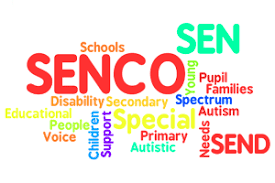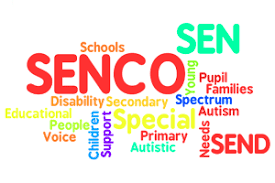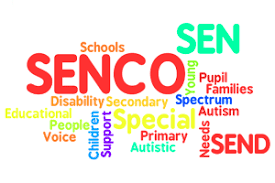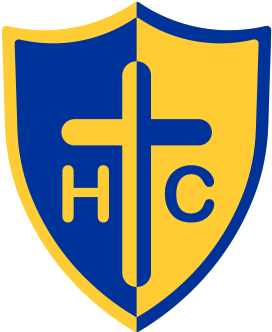SEN Support, Referrals, EP Service and PATT SENDIASS
What does SEND mean?
A child or young person aged from 0 to 25 years has special educational needs or disability (SEND) if they:
- have a learning difficulty or disability which makes it much harder for them to learn than other pupils of the same age
- they require special educational provision to be made for them
SEN is a legal term. A detailed description can be found in the SEN Code of Practice.
Different types of special educational needs or disability (SEND)
Children with SEND may need extra help or support, or special provision made for them to have the same opportunities of other children of their age.
Most children and young people with SEND attend their local, mainstream school.
The 4 areas of need according to the SEND Code of Practice
If your child has a SEND, their needs will fall into one or more of the following 4 areas:
Communication and interaction needs
Children and young people might:
- struggle to talk or say what they want to
- find it hard to understand what other people are saying
- find conversations and play confusing or challenging
Cognition and learning difficulties
Children and young people might:
- learn at a slower pace than others
- find the curriculum difficult
- struggle with organisation and memory
- have a specific difficulty, for example, in literacy or numeracy
Social, emotional and mental health difficulties
Children and young people might:
- find relationships difficult
- appear withdrawn or isolated
- behave in ways that affect their learning, for example, being disruptive
- do things that impact on their health and wellbeing
Sensory and/or physical needs
Children and young people might have a disability such as:
a visual and/or hearing impairment
a physical difficulty
They may find it hard to access a school because of their disability. This means they might need extra support or specialist equipment.

SEN Support
SEN Support is what schools and similar settings use to find and meet the needs of children with special educational needs (SEN).
Who can get SEN Support?
Education settings must make sure they meet the “reasonable” special educational needs of children. This means that all education settings – early years settings, schools and colleges – should be able to meet the needs of most children with a learning disability.
How to get SEN Support
If a child or young person has SEN, or an educational setting thinks that they might have SEN, the staff must follow this process:
Assess: they must talk to a child’s parents or the young person themselves to work out what support might be needed.
Plan: once a child or young person’s needs have been identified, staff must work together with them and their family to decide what outcomes they want the child or young person to achieve and what support should be put in place to help them achieve those outcomes.
Do: the staff, supported by the special educational needs coordinator (SENCO) where relevant, should put this support into practice.
Review: the support received by the child or young person should be reviewed by everyone involved to see if it is working. If it is, it might continue. If it is not working, or if the outcomes have been achieved, some of the arrangements might be changed.
Schools must set out their arrangements for supporting pupils with SEN in an online policy.

Thurrock Community Children’s Health Team
The Community children's teams consist of speech and language therapists, occupational therapists, physiotherapists, specialist health visitors and nursery nurses who are supported in their work by assistants and administrators.
We work with children and young people from 0-19 years who have difficulties in a wide-range of areas.
We are organised into three integrated teams, which means Occupational Therapists, Physiotherapists and Speech and Language Therapists all work together.
These are arranged by area; Brentwood (including Billericay), Basildon (including Wickford) & Thurrock.
The Specialist Health Visiting team are a skill mixed team, including Health Visitors, Nursery Nurses, and administrative support. The team work closely with Paediatricians, Therapists and agencies outsides of health including Education and Social Care, also working with independent and voluntary services across Essex & Thurrock.
The team provide advice, support, and assessment to families of children with additional or suspected additional needs, complimenting the services provided by universal services (link to universal services, including local authority).
Specialist Health Visitors are qualified nurses with additional qualifications and experience relating to the complexity and special needs of children and the impact this has on the individual and wider family. They manage the skill mixed team in localities Thurrock, Brentwood/Billericay, and Basildon/Wickford. They help develop and deliver care pathways for children with additional needs, offering advice, support, and assessment, working in partnership with the multi-disciplinary teams and partner agencies.
Nursery Nurses are trained in child development and observation and have acquired additional skills through experience and training. They can assist in the delivery of care pathways for children with additional needs, offering advice, support and interventions to children and their families. They also work using a partnership approach with the multi-agency team and partner agencies.
Speak to your GP, Mrs Awolola or contact them directly on Tel: 0300 300 1555
Email: CSPA@nelft.nhs.uk

Educational Psychologists
Educational psychologists (EPs) offer a wide range of services to help the development of children and young people.
Our services include:
- assessment and intervention work with individual young people and children
- psychological interventions for individual young people and children
- consultation for staff, such as groups of teachers
- supervision, advice and support for staff involved with psychological interventions or working with children with complex needs
- training for parents, such as parenting skills, child development, how to support their child’s learning
- direct work with parents of young people and children experiencing difficulties
- advice and support on psychologically-based interventions for groups of children
- bespoke staff training packages including specific areas of need
- support for schools as organisations
Educational psychologists (EPs) work with children and young people who may have difficulties with their:
- behaviour
- communication
- emotional well-being
- health
- language
- learning
- physical development
- social well-being
We do this through:
- individual child assessments
- direct work with school staff and families
- supervision of staff
- staff development and training across organisations

PATT SENDIASS
Parent Advisory Team Thurrock Special Educational Needs & Disability Information Advice & Support Service
How Can They Help?
- Give advice and guidance on SEN Support
- Give guidance and resources to families to complete Family Views documents.
- Support Young People to give their views and create a One Page Profile.
- Support families on all aspects of the EHCP process
- Arrange and attend Disagreement Resolution Meetings with the family/local authority/school
- Support family to identify appropriate provision at Transition Stages
- Support families at School Exclusion Hearings and/or Independent Review Panel Hearings
- Support family/young person with all aspects of Preparing for Adulthood
- Give guidance to family and school on Local Authority Policy & SEND law
- Identify and signpost to local support groups and national organisations
For further information visit www.patt.org.uk
Thurrock SEND Podcasts
The Local Authority Special Needs Service have introduced a new podcast system in order to inform parents of how to support their child’s needs and access appropriate services. Their intentions are to ensure that the voice of the parent and child are at the heart of the support that families and professionals offer collaboratively. Check out the webpage attached for further information: https://www.askthurrock.org.uk/kb5/thurrock/fis/advice.page?id=lQUO-cHfNUY
